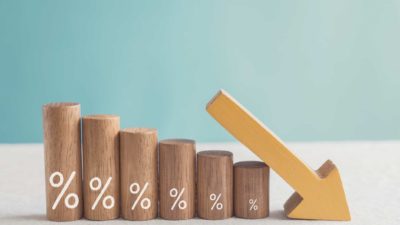Experts say Australia is in a position to benefit hugely from the electric car revolution.
With an abundance of lithium, cobalt and nickel miners listed on the ASX, we certainly have plenty of resources to produce electric vehicles – right here in our own backyard.
A report by the Electric Vehicle Council in September 2020 found that replacing a traditional petrol or diesel vehicle in Australia with an electric car could generate a net government revenue of 1.1 cents per kilometre driven.
So what's stopping Australia from chasing (or, in the case of Victoria, increasing taxation on) an electric dream?
The Submission on the Future Fuels Discussion Paper, written by Audrey Quicke and published today by the Australian Institute, asks just that.
Charging ahead or crashing our potential?
Quicke argues that the Federal Government is crashing the future of electric cars in Australia.
She says the government's Future Fuels Strategy: Discussion Paper is disappointing and uses misleading modelling to show electric vehicle subsidies are not value for money.
Quicke reasons a correct future fuel strategy should include short-term financial incentives to make electric vehicles more affordable and set a target for the government's fleet to be made of 100% electric vehicles by 2030. It should also take into account light vehicle CO2 emissions standards.
She says the government's discussion paper doesn't compare costs and savings for like-for-like cars over their lifetime. Further, emissions comparisons aren't averaged over a vehicle's lifetime and don't consider the likelihood of powering electric cars with solar.
So, should government do more to promote electric cars?
"Instead toying with the idea of punishing people for buying electric vehicles by charging them additional taxes, the rational thing for government to do would be pull out all stops to encourage transport electrification." https://t.co/nahH8tu9DV
— Electric Vehicle Council of Australia (@EVCouncil) September 27, 2020
The Electric Vehicle Council's September report found electric cars brought large benefits to the economy.
It found replacing a fossil-fuelled car with an electric one brought an average lifetime benefit of $8,763. If a traditionally fuelled bus was replaced by one of its electric counterparts, that figure became more than $40,000.
The council arrived at these figures by equating a multitude of factors, including:
- Sales taxes;
- Cheaper running costs meaning more disposable income for Australian households;
- Revenue from income tax, as producing electricity creates more Australian jobs than producing fossil fuels;
- Lesser costs associated with upkeeping Australia's fuel reserve;
- Financial benefits of lowering Australia's GHG emissions;
- Lower costs of air and noise pollution.
What about the environment?
The Australian Academy of Science recently found Australia must decarbonise much faster than planned to avoid the devastating effects of climate change.
It found we must drastically limit our GHG emissions or, most likely, face a global temperature increase of 2°C.
The statistics back that up. For the year ending September 2020, nearly 18% of Australia's greenhouse gas (GHG) emissions were caused by transport using petrol, diesel or LPG engines.
There are plenty of arguments that electric vehicles could help solve the challenges facing Australia and its environment.
Consumers are on board
With or without government support, Australians are jumping onboard an electric vehicle revolution, according to the Electric Vehicle Council's 2020 report.
56% of Australians surveyed said when buying their next car, they would consider buying an electric vehicle. In addition, public charging infrastructure is becoming more common, and demand isn't waining yet.
We've still got a long way to go. Globally, up to 1 in 20 new cars sold are electric. Only 0.6% of new cars in Australia can say the same.
But with an abundance of ASX listed companies creating products aimed at powering the electric vehicle market, we might already be witnessing the beginning of the future.









